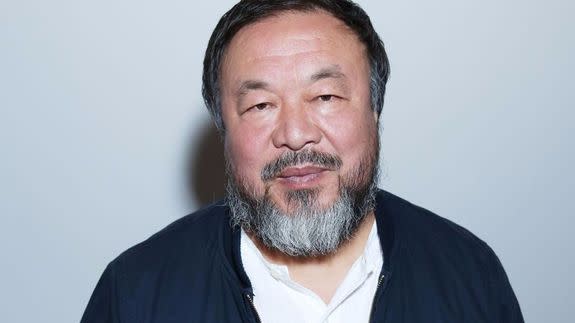LEGO said it was a 'mistake' not selling bricks to Chinese dissident artist Ai Weiwei

LEGO, ya blew it.
The toy brick company has admitted that it was a "mistake" to not sell its product to Chinese dissident artist Ai Weiwei, who requested a bulk order for an artwork last year.
SEE ALSO: At long last, LEGO's first official Australian store is set to open
Ai wrote on Instagram back in September 2015 that LEGO wanted no part of an artwork celebrating human rights champions for display at Australia's National Gallery of Victoria, as "they cannot approve the use of Legos for political works."
It's a stance that's left the company rueing, according to a Wall Street Journal interview published on Thursday with Kjeld Kirk Kristiansen, LEGO's vice-president and grandson of the company's original founder.
Kristiansen told the outlet that the ordeal was an "internal mistake" and that the request was rejected "very low in the organization by our consumer service department."
The bungle was the result of an employee which misinterpreted the company's stance on political neutrality, with no involvement from the company's board, Kristiansen said. "It is a typical example of what can go wrong in a big company," he told the publication.
The saga dubbed #Legogate on social media, soon inspired donations of the toy brick from the public. Ai ended up building his work with knock-off LEGO blocks from China, according to exhibition curator Max Delany in an interview with VICE. The public LEGO donations are to be used for a separate project, Delany said.
LEGO revised its policy on bulk orders in January, with the company no longer asking customers on the "thematic purpose" of their work when an order is placed, instead requiring the artists to display a disclosure that LEGO does not support or endorse the work.
Ai told the Wall Street Journal that he welcomed the company's statement, but that it was perhaps too far gone.
"I think it's positive but I think they recognized it a bit too late," Ai told the publication. "I have to respond to this incident because it is about freedom of expression. The Lego company has such a strong influence on every child so I think it's not an issue to be ignored."
Ai has been critical of China's government and is an advocate for human rights, once detained by Chinese authorities due to supposed "tax evasion" in 2011.
Ai's exhibition, pairing his works with those from pop artist Andy Warhol, recently broke a record at the National Gallery of Victoria. It was the most popular ticketed show in the gallery's history, clocking up 399,127 visitors in total, according to Fairfax Media.
Turns out Ai didn't need LEGO's support anyway.
